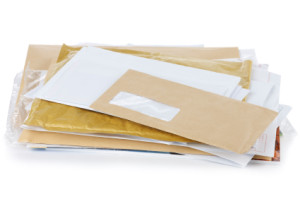
You may also find yourself not knowing what to do, as you might not have suffered a bereavement before. This guide aims to help you by letting you know what needs to happen following the death of a loved one.
What do you do initially?
If your loved one dies at home or in a nursing home, and the death was anticipated, then you will first need to contact their GP. They will issue a medical certificate and a formal notice if they are confident of the cause of death, which you may need to collect from the surgery at a later point. Nursing home staff will usually have experience with what to do following a death and so should be able to help you if the death occurs in a nursing home.
If the death occurs in a hospital, then hospital staff will contact the next of kin. The hospital staff will arrange for the doctor present to issue the medical certificate of cause of death. You will need to collect their belongings and will probably need to collect the certificate from the hospital. The hospital will keep the deceased in their mortuary until the funeral director effects the removal.
The role of the coroner

The coroner may ask for a post-mortem to establish the cause of death. This is a medical examination of the body which should not delay when you can hold the funeral. This is different from an inquest, which the coroner holds if the cause of death was unknown, violent or unnatural, and if the death was caused by a disease in the workplace or if the person died in prison. It is a fact-finding inquiry, to establish the cause of death, which is held in public, sometimes with a jury. Whether or not you can proceed with the funeral whilst an inquest is ongoing will depend on individual circumstances.
Getting help and advice from a funeral director

Having the services of a professional funeral director makes this incredibly stressful time easier. If your loved one has not specified a funeral director in their will, then family members, friends, your local doctor or local clergy should be able to recommend a local funeral director with a good reputation to you, or you can search online or in the phonebook.
Most funeral directors are members of a trade association with a code of practice, but it is worth checking this. Key examples include the National Association of Funeral Directors, the Selected Independent Funeral Homes, the British Institute of Funeral Directors and the Society of Allied and Independent Funeral Directors. If you require the services of a memorial mason, you should check that they belong to the National Association of Memorial Masons and the British Register of Accredited Memorial Masons.
Looking after empty properties

If the death occurs during the winter, make sure you leave the heating on – either on low constantly, or to come on a couple of times per day. This will prevent any pipes from freezing and, therefore, stop the property from flooding.
Also, dispose of any perishable foods, turn off the fridge and leave the door ajar. Make sure any house plants are tended to regularly, collect or move any post every couple of days so that there is not an obvious buildup of mail behind the front door, and adjust the blinds or curtains at least every couple of days, to give the appearance of someone still being at home. If you live a considerable distance from the property and cannot travel there regularly, it might be worth giving a key to a trustworthy neighbour and asking them to help with this. You can also buy time clocks from most hardware stores, which can time a lamp or light to turn on and off at pre-set times.
Registering the death

- The Medical Certificate showing the cause of death
- Their NHS Medical Card
- Their Birth and Marriage or Civil Partnership Certificates
The Registrar will also ask you for the following information regarding the deceased, so if you do not know all of it, then you should attempt to find out and write it down before you go to register the death:
- Their full name, including maiden name if a woman
- Their home address
- The place and date of their birth
- The place and date of their death
- Their last occupation
- Their husband’s last occupation, if appropriate (even if deceased)
- The date of birth of their surviving partner, if appropriate
- Their husband’s full name, if appropriate (even if deceased)
- Whether or not they were in receipt of a pension or other allowance from public funds
As the informant, you will also need to provide the Registrar with your full name and home address. If you are unsure whether or not you have the authority to register the death, speak with your funeral director.
When you go to register the death, the Registrar with give you a green certificate which must be given to the funeral director so that the funeral can take place, and a white certificate, which is for social security purposes.
You may also need copies of the death certificate for the will, any pension claims, insurance policies, saving bank certificates and premium bonds. If you do, you will need to pay for these copies, so make sure you take some money with you to the Registrar. You should note that banks, insurance companies, etc., do not accept photocopies, so you will need a certified copy of the death certificate for each one.
Who you should inform

Friends and family aside, you will also need to contact the following:
- Their employer, if they were still working
- Their school, college or university, if they were in education
- The hospital and/or family doctor and make sure any outstanding appointments are cancelled
- Social services and/or district nurses and any equipment belonging to these will need to be returned
- Social security (form 344/BD8 needs to be completed to cancel any direct payments into a bank account. This is the “white certificate”, mentioned above, that is provided by the Registrar).
- The local council, to cancel any housing or rate benefits and council tax
- Gas, electricity, telephone, water and cable companies, to cancel accounts
- The Inland Revenue
- Banks and building societies – you will need to close any accounts and amend any joint accounts
- Credit card companies to cancel any credit cards they may have had and to settle accounts.
- Investment and insurance policies
- Car insurance company – if you are on a joint policy with the deceased, you are not legally allowed to drive, and the documentation will have to be changed
- The Post Office to arrange re-direction of mail if necessary. A small charge may be made in order for you to do this.
- Store card providers – these will also need to be cancelled
With many of these, it is important to notify quickly, such as their employer, if they were still working, as you do not want to be taking a call from an employer wanting to know why your loved one was not at work when they have just passed away. It should also limit the amount of letters you receive addressed to the deceased, causing you further heartache, and will also help to keep you busy, which can often help following a bereavement.
Services and items to cancel and return
Which items you need to cancel is going to vary depending on the services that were used by your loved one. You will want to make your own list and then contact the relevant people accordingly, but here are some suggestions as to what you may have to cancel:
- Milk
- Newspapers
- Appointments
- Meals on wheels
- Home help
- Chiropodist
- Dentist
- Eye specialist
- Hairdresser
- Home care
- Gardener
- Magazine and/or newspaper subscriptions
Again, which items need to be returned is going to vary according to the individual, but there are some items that most people will own which will need to be returned. These include:
- Passport
- Driving licence
- Vehicle registration documents
- Car insurance
- Television licence
- Season tickets and club membership cards
- Library books and card
- National Insurance papers
- Disabled parking permit
These are some of the initial things you will need to think about following the death of a loved one, but you will also need to start thinking about what type of funeral you would like for them, when and where you would like it to be held and details about the funeral, if your loved one has not already specified this. Please read our guide to the latest funeral trends for information about what people are choosing to include in their funerals.
